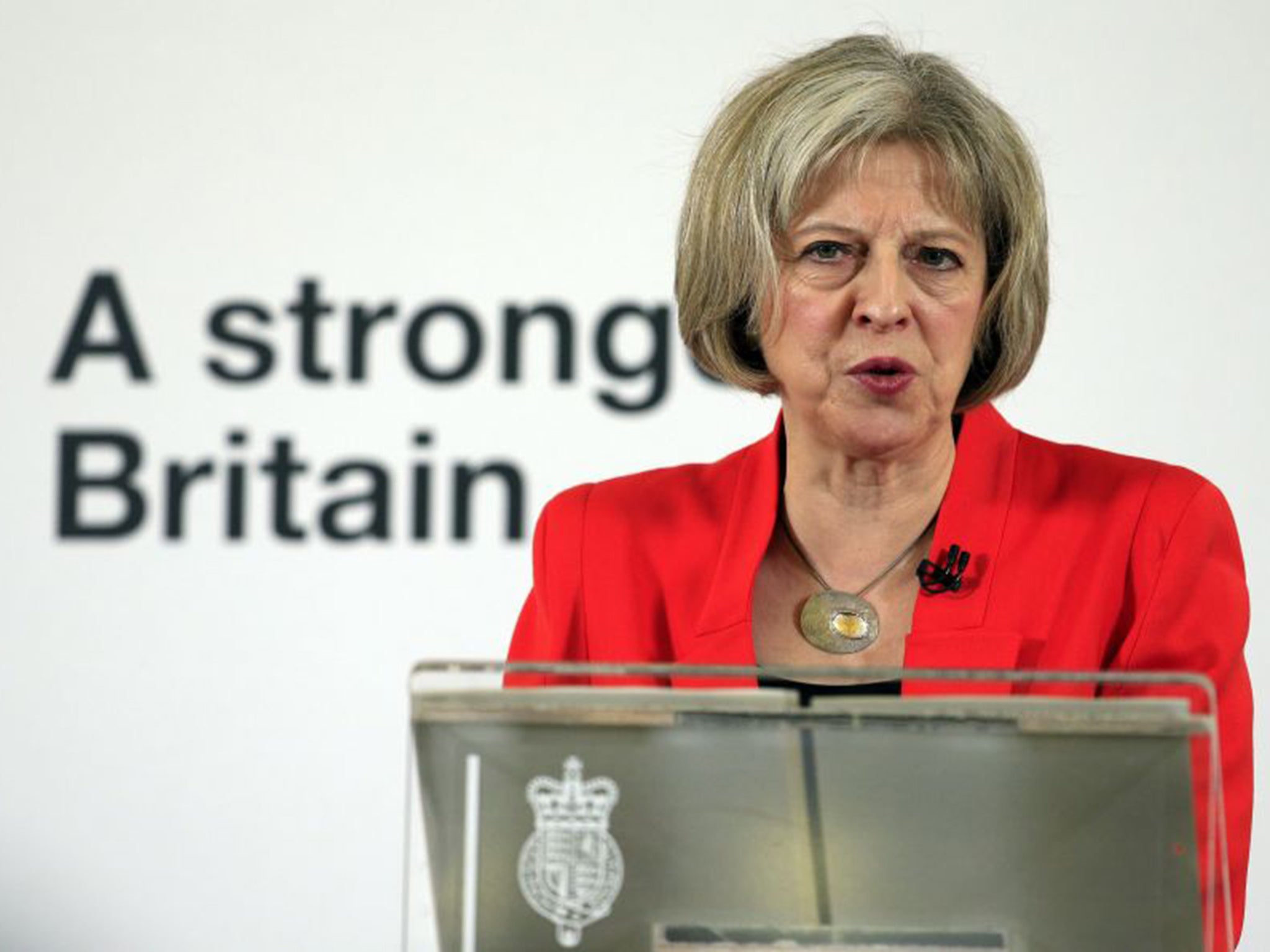Snoopers' charter set to return to law as Theresa May suggests Conservative majority could lead to huge increase in surveillance powers
Previous attempts to introduce huge surveillance powers had been blocked by Liberal Democrat members of the coalition

Your support helps us to tell the story
From reproductive rights to climate change to Big Tech, The Independent is on the ground when the story is developing. Whether it's investigating the financials of Elon Musk's pro-Trump PAC or producing our latest documentary, 'The A Word', which shines a light on the American women fighting for reproductive rights, we know how important it is to parse out the facts from the messaging.
At such a critical moment in US history, we need reporters on the ground. Your donation allows us to keep sending journalists to speak to both sides of the story.
The Independent is trusted by Americans across the entire political spectrum. And unlike many other quality news outlets, we choose not to lock Americans out of our reporting and analysis with paywalls. We believe quality journalism should be available to everyone, paid for by those who can afford it.
Your support makes all the difference.The Conservatives are already planning to introduce the huge surveillance powers known as the Snoopers’ Charter, hoping that the removal from government of the Liberal Democrats that previously blocked the controversial law will allow it to go through.
The law, officially known as the Draft Communications Data Bill, is already back on the agenda according to Theresa May. It is expected to force British internet service providers to keep huge amounts of data on their customers, and to make that information available to the government and security services.
David Cameron has suggested that his party could introduce even more wide-ranging powers if he was re-elected to government. Speaking in January, he said that there should be no form of communication that the government was unable to read — likely causing chaos among the many internet services that rely on encryption to keep users’ data safe.
In the wake of the Charlie Hebdo attacks in Paris at the beginning of the year, he pledged to re-introduce the snoopers’ charter. He asked: “In our country, do we want to allow a means of communication between people which […] we cannot read?”
His comments could mean that encryption could be outlawed or heavily regulated, potentially leaving users' data highly insecure.
Throughout the election campaign and before, Conservatives have repeatedly said that they would introduce the bill again if they were to be re-elected.
Join our commenting forum
Join thought-provoking conversations, follow other Independent readers and see their replies
Comments